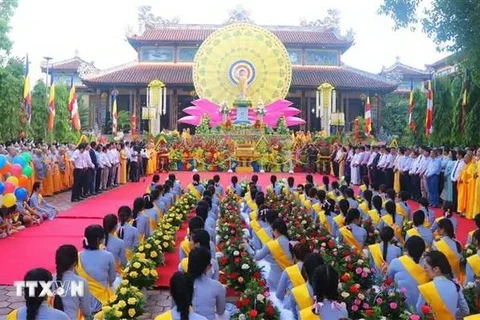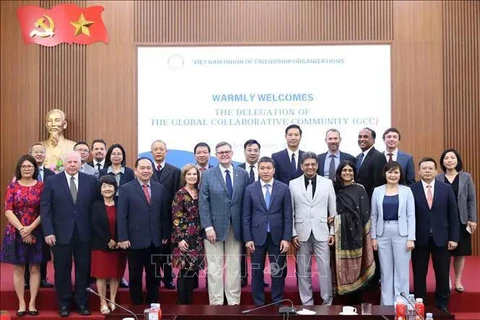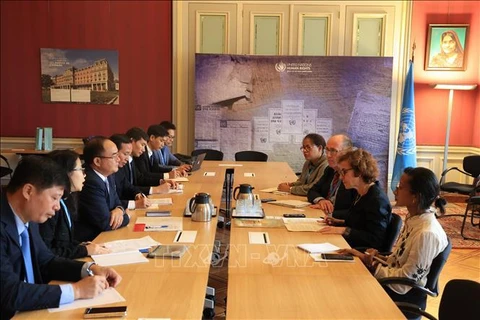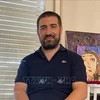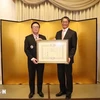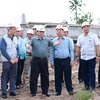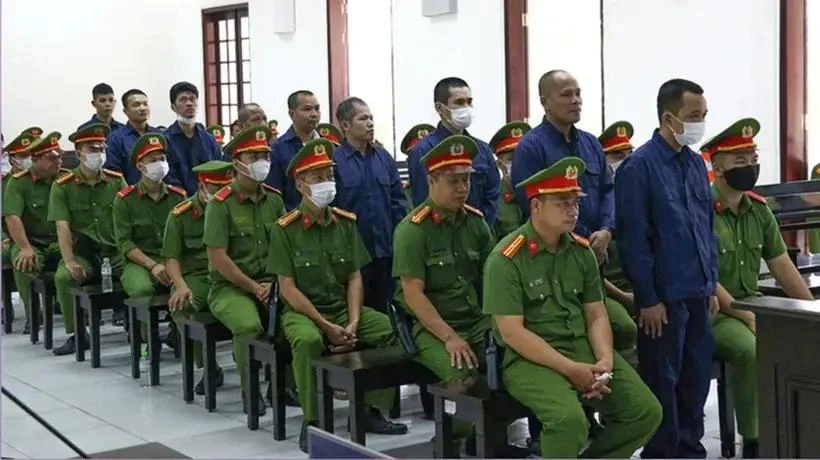
Hanoi (VNA) - Despite Vietnam's efforts and achievements in ensuring human rights, including the protection of freedom of religion and belief, which have been recognised and highly praised by many countries, certain individuals and organisations with hostile ideologies have continued to distort the truth, fabricate stories, and create false narratives with malicious intents.
Continuing its old allegations, in its latest report released on December 12, the US Commission on International Religious Freedom (USCIRF) listed several recent cases, such as the People's Court of Vinh Long province sentencing individuals who exploited democratic freedom to infringe upon the state's interests, to "raise alarm" about what it claimed is "significant backsliding on religious freedom in Vietnam" or "Vietnamese law imposing restrictive requirements on religious activities."
It must be affirmed that the USCIRF has once again resorted to the outdated tactic by citing fabricated, slanderous, and false information to distort the issue related to the freedom of religion and belief in Vietnam. The individuals that it is advocating for are actually defendants who were prosecuted for violating the law. A case in point is that of defendant Thach Chanh Da Ra and his accomplices at Dai Tho Pagoda in Loan My commune, Tam Binh district, Vinh Long province, who were sentenced to prison for the act of “abusing the rights to freedom and democracy to violate interests of the State, legitimate rights and interests of organisations and individuals,” “kidnapping and illegally detaining people.” The case was thoroughly investigated by the authorities, and the trial was conducted openly, with justice served according to the law, ensuring the rule of law was upheld.
Making one-sided assessments of "increased repression of independent religious communities which are not controlled by the State" in Vietnam, the USCIRF has deliberately "turned a blind eye" to the fact that anyone, including many international delegations from the US and Western countries, can visit and freely practice their religion at Cao Dai oratories and the Cao Dai Holy See in Tay Ninh province.
From 2021 to 2023, for Protestantism alone, the Vietnamese State approved 170 additional groups and six affiliated religious organisations in the northern mountainous region; 11 additional affiliated religious organisations from previously registered groups for concentrated religious activities in five Central Highlands provinces. As of May 2024, the State had recognised and granted operation registrations to 43 organisations belonging to 16 religions. It always pays attention to and creates favourable conditions for religions to operate and develop in accordance with the provisions of the Constitution and laws, creating a stable and healthy environment for religious activities.
It can be said that the USCIRF is absurd in defending organisations, associations, and groups operating under the guise of religion and violating Vietnam's law, such as the “Giao hoi Phat giao Viet Nam thong nhat” (Unified Buddhist Sangha of Vietnam), the Duong Van Minh religion, the “Hoi thanh Duc Chua troi” (World mission society Church of God). These organisations are neither recognised by the State nor granted religious activity registrations. Among them, certain organisations are considered heresies that exploit beliefs and religions for personal gains or conduct activities aimed at opposing the Communist Party and the State of Vietnam, as well as undermining the great national unity bloc.
For instance, the Duong Van Minh religion exploits the lack of awareness among some people of the Mong ethnic minority group, spreading superstitious and deceitful rhetoric to coerce and manipulate them into joining activities that contradict their traditional customs, culture, and practices, causing negative public opinion and complicating security and order in local areas. Similarly, the so-called "World mission society Church of God" has developed in an extreme manner, blatantly disregarding Vietnam's legal regulations. It has revealed negative impacts that run counter to Vietnamese traditions and ethics, such as coercing and inciting followers to abandon ancestral worship practices, show disrespect to parents, and use superstition and divine authority to pressure followers.
Every country in the world must have laws to maintain social order. Therefore, individuals or groups deliberately exploiting religion to violate the law, disrupt political security, and undermine public order are subject to strict legal actions in Vietnam. The reports and assessments of the USCIRF fail to reflect the reality in Vietnam and only worsen disagreements and contradictions among nations in the field of belief and religion.
As Vietnam and the US are heading towards the 30th anniversary of the establishment of diplomatic ties in 2025, and as the two countries recently marked the first anniversary of the establishment of their Comprehensive Strategic Partnership, such discordant voices are not beneficial to either side. They run counter to the trend of reconciliation, setting aside the past to focus on the future, and fostering cooperation for mutual development. It is high time for the USCIRF to respect the truth and put an end to its distorted allegations, biased perspectives, and one-sided evaluations based on unverified information about the reality of religious and belief freedom in Vietnam./.
